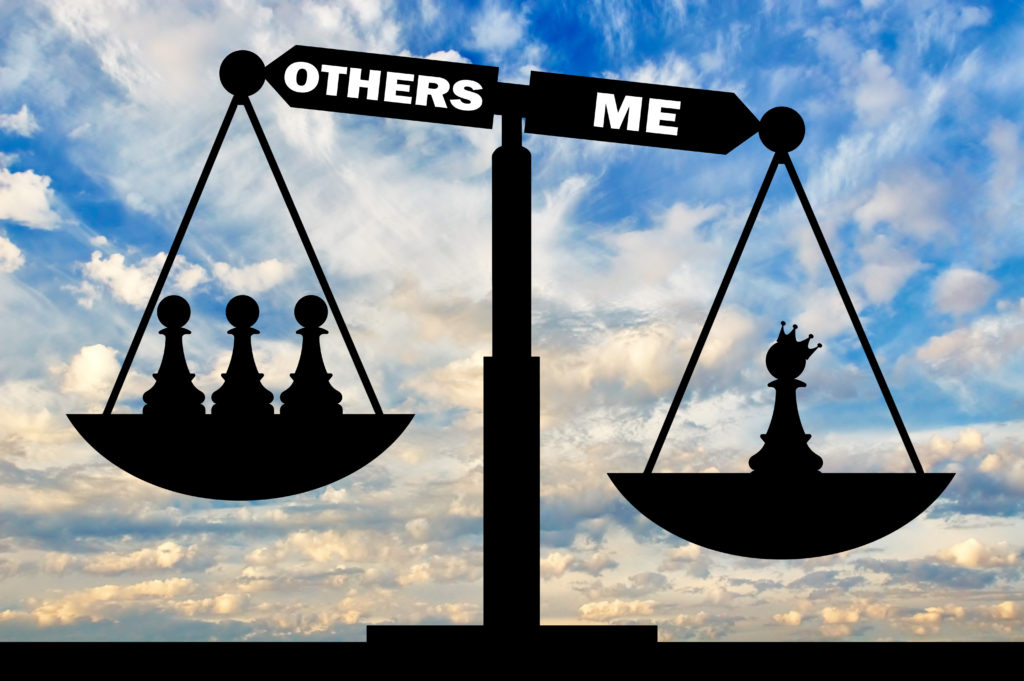Quick Hits
Daily brief research updates from the cognitive sciences

Narcissism is considered one of the three dark-triad traits and something that has been reported as being common in senior leaders.
The important question is can and does this hinder effective business practices or can narcissism give the drive to succeed that can benefit the business? Narcissists themselves would obviously argue that their skills and drive help the business.
This research out of the University of Washington suggests otherwise. And will come as no surprise to many employees and leadership experts.
In this study researchers analysed leaders of busines units of a large Chinese headhunting company. The leaders themselves rated their own narcissistic traits with a standardised questionnaire, the dynamics and complexity of the local market, and perceived competition with other business units. Their deputies were then asked to rate the level of knowledge sharing.
What did they find?
They found that narcissism led to decreased knowledge sharing. However, this was moderated by changing or complex environments. Notably when there was some stability and high inter-unit competition knowledge sharing was particularly stifled.
Some people may claim that having internal competition is beneficial to the organisation, but this shows that when, and if, knowledge sharing is important, which it certainly is in many complex organizations, this can actively hinder this. So be careful of too much internal competition and be careful of narcissistic leaders – or use them cautiously●

Andy Habermacher
Andy is author of leading brains Review, Neuroleadership, and multiple other books. He has been intensively involved in writing and research into neuroleadership and is considered one of Europe’s leading experts. He is also a well-known public speaker speaking on the brain and human behaviour.
Andy is also a masters athlete (middle distance running) and competes regularly at international competitions (and holds a few national records in his age category).
Reference
Xin Liu, Lin Zhang, Abhinav Gupta, Xiaoming Zheng, Changqi Wu.
Upper echelons and intra-organizational learning: How executive narcissism affects knowledge transfer among business units.
Strategic Management Journal, 2022
DOI: 10.1002/smj.3406
More Quick Hits
Engaging Leadership Boosts Employee Engagement, and Team Effectiveness, and Resilience
Quick HitsDaily brief research updates from the cognitive sciences paper just out has looked again at leadership style and impacts on employee engagement and also various team effectiveness measures. Greta Mazzetti of the University of Bologna,...
When Cognitive Games Do Make You Smarter
Quick HitsDaily brief research updates from the cognitive sciences ognitive games have been around for many years now – the first wave of popularity came with Nintendo’s “brain jogging” almost two decades ago now. These games have claimed that they...
How Walking Makes Some People “Super Taskers”
Quick HitsDaily brief research updates from the cognitive sciences hose of you who have followed my writing will know that I have reported regularly on the amazing benefits of exercise and walking on the brain, body, and cognition. However, though...
Older People are Better at Responding to Distress
Quick HitsDaily brief research updates from the cognitive sciences e may have some cliched ideas of older people like the grumpy or angry old man, or woman (but it is often a man). However, research continually shows the opposite. Namely that...
Guided Play Highly Effective for Learning in Children
Quick HitsDaily brief research updates from the cognitive sciences ood news for some and bad news for traditionalists in education. Some believe that starting education early and using classical and traditional learning activities is the best way...
Childhood Fitness Improves Mid-Life Cognition
Quick HitsDaily brief research updates from the cognitive sciences always find these long-term studies fascinating. Imagine launching study and not knowing what the outcomes will be for another 30 years! This is precisely what this study did. It...






